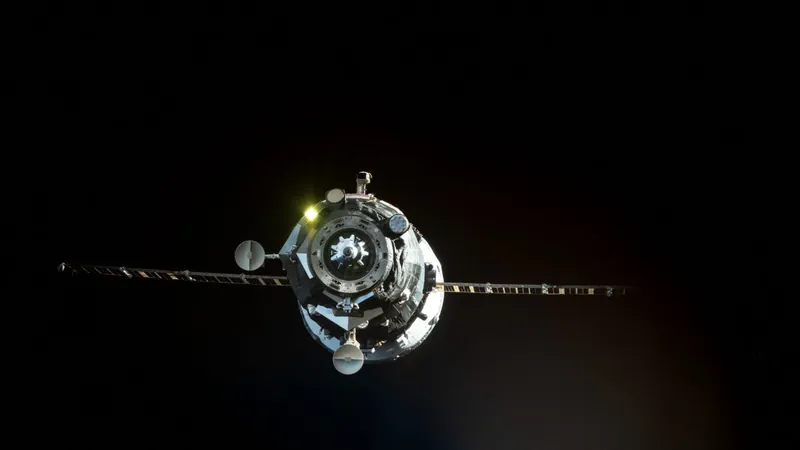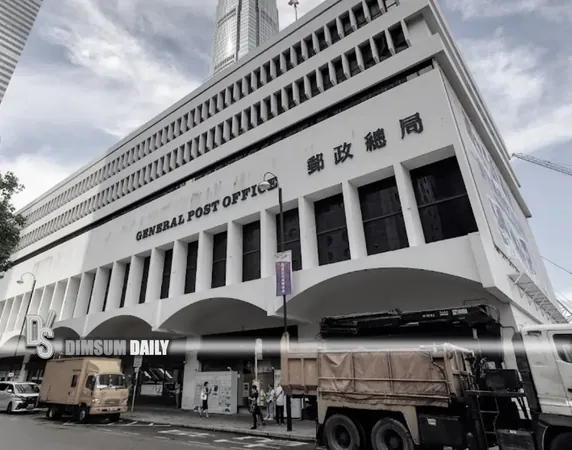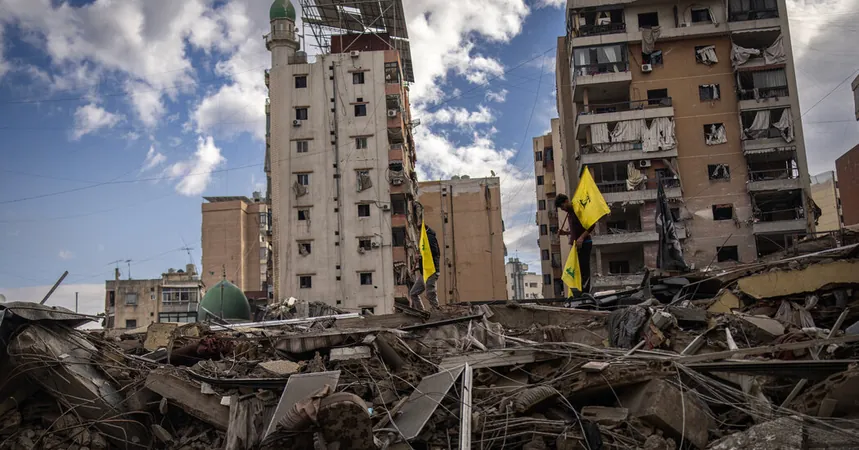
Shocking Discovery: Toxic Smell Reported After Russian Cargo Ship Docks at Space Station!
2024-11-24
Author: Jia
Introduction
In what was expected to be an ordinary mission to deliver approximately three tons of essential supplies—food, fuel, and equipment—to the International Space Station, Russian cosmonauts were met with a disturbing surprise: a foul, potentially toxic smell emanating from the Progress spacecraft.
Incident Details
Upon opening the hatch to the cargo ship on Saturday, the cosmonauts reported an unexpected odor and noticed small droplets, leading them to swiftly close the hatch to the Poisk module, which connects to the Russian segment of the station.
NASA's statement on Sunday clarified that contamination sensors and air scrubbers aboard the space station were activated to monitor the atmosphere closely, and, by Sunday afternoon, flight controllers in Houston reassured that the air quality inside the station had returned to normal.
Expert Opinions
However, industry experts are raising eyebrows at the agency's seemingly relaxed attitude toward the incident.
Anatoly Zak, a prominent journalist specializing in space affairs with Russian Space Web, declared that this unusual smell was indeed “toxic” and warranted immediate protective measures from the cosmonauts, who donned safety equipment and activated additional air-scrubbing systems on their side of the space station.
Meanwhile, NASA astronaut Don Pettit described the odor as reminiscent of "spray paint," adding to concerns about the underlying causes.
Current Status
As of now, NASA maintained that there were no immediate health threats to the crew, who were making efforts to open the hatch between the Poisk module and the Progress spacecraft.
Poisk, which has been an integral part of the space station since its attachment in 2009, serves as one of the four docking ports on the Russian side.
Speculation on Source
The source of the unpleasant odor remains unclear. Notably, prior Russian spacecraft have experienced issues, including a recent incident in February 2023 when a Progress vehicle lost pressurization due to cooling system failures.
The Russian space program continues to grapple with various challenges exacerbated by the ongoing conflict in Ukraine and the financial and staffing strains it has created. This incident only adds to the myriad of technical troubles that have plagued Roscosmos in recent years, underscoring the fragility of current space operations.
Conclusion
Stay tuned for more updates on this developing story as experts analyze the possible implications of this alarming situation aboard the International Space Station. Could this toxic encounter jeopardize future missions? Only time will tell!



 Brasil (PT)
Brasil (PT)
 Canada (EN)
Canada (EN)
 Chile (ES)
Chile (ES)
 España (ES)
España (ES)
 France (FR)
France (FR)
 Hong Kong (EN)
Hong Kong (EN)
 Italia (IT)
Italia (IT)
 日本 (JA)
日本 (JA)
 Magyarország (HU)
Magyarország (HU)
 Norge (NO)
Norge (NO)
 Polska (PL)
Polska (PL)
 Schweiz (DE)
Schweiz (DE)
 Singapore (EN)
Singapore (EN)
 Sverige (SV)
Sverige (SV)
 Suomi (FI)
Suomi (FI)
 Türkiye (TR)
Türkiye (TR)